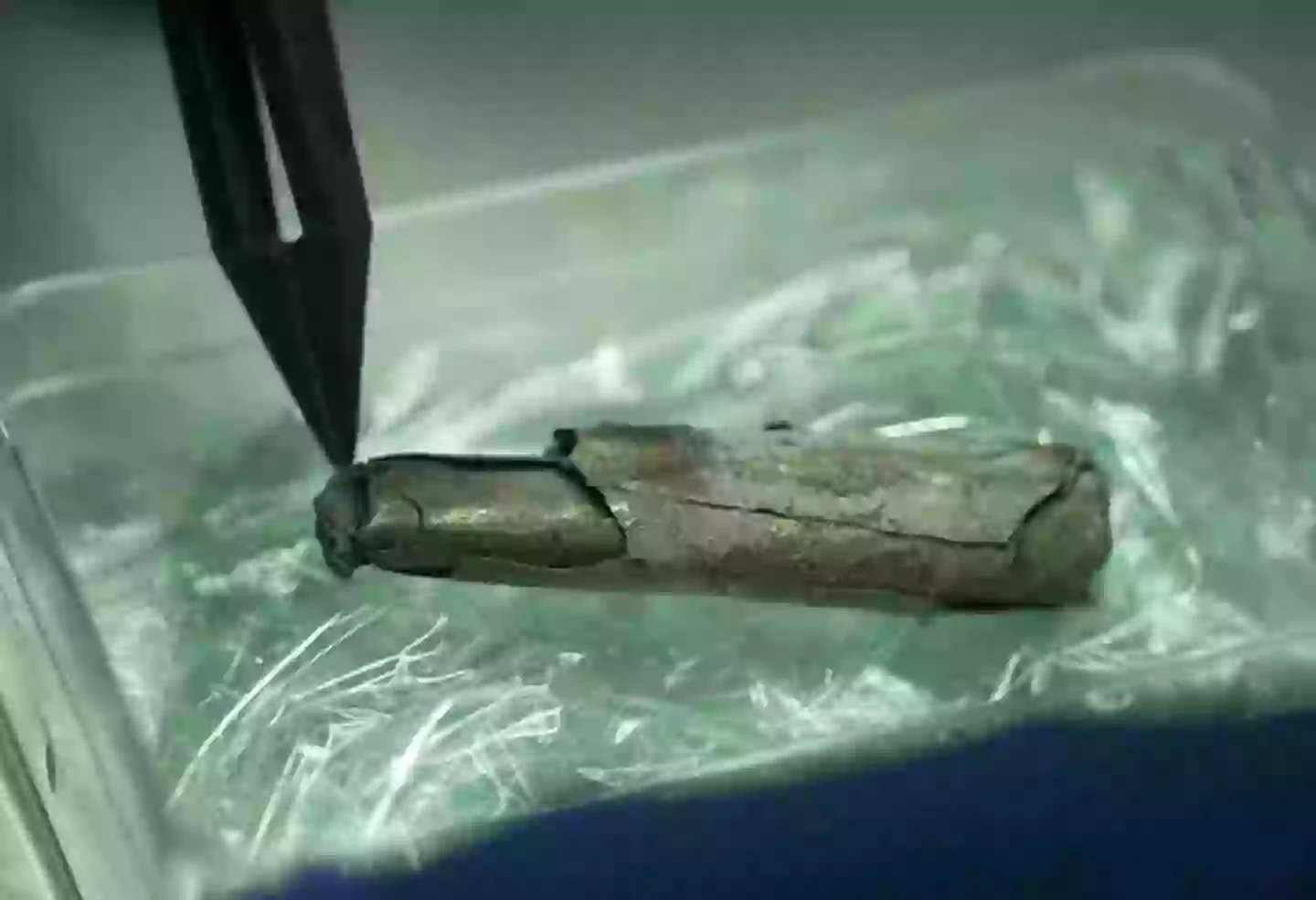
A mysterious 1,800 year old amulet was uncovered in Germany and it could completely change the history of Christianity.
The incredible discovery was last read by a person nearly two thousand years ago but it has now been unearthed.
At the time Christianity was considered to be a cult, and it would be another 100 years after the amulet was buried that it was finally recognized as a religion.
Advert

Inside the amulet is a silver inscription which experts have finally deciphered.
Having been found buried next to the skeleton of a man just outside of Frankfurt, Germany, scientists used CT scans to read what is written on the scroll.
And now it has become the oldest piece of evidence of the religion north of the Alps.
Advert
In the amulet, the writing on the foil refers to ‘Lord Jesus Christ’, ‘Son of God,’ and ‘Saint Titus’.
Ivan Calandra, who is an archaeologist at LEIZA, said: “The challenge in the analysis was that the silver sheet was rolled, but after around 1,800 years, it was of course also creased and pressed.
“Using CT, we were able to scan it at a very high resolution and create a 3D model.”
The artifact was originally found in 2018 and was positioned under the man’s chin, which has led researchers to believe that he had been wearing it as a necklace with a cord once around his neck.
Advert
The investigation into what the text said was led by Professor Markus Scholz, who is an archaeologist from Goethe University in Frankfurt.

He said: “I called in experts from the history of theology, among others, and we approached the text together, piece by piece, and finally deciphered it.:
Scholz added that such inscriptions ‘in amulets were usually written in Greek or Hebrew’ but an unusual feature of this one is that it was written entirely in Latin.
Advert
According to the mayor of Frankfurt, Mike Josef, the discovery of the inscription is ‘a scientific sensation’.
He said: “It will force us to turn back the history of Christianity in Frankfurt and far beyond by around 50 to 100 years.
“The first Christian find north of the Alps comes from our city – we can be proud of that, especially now, so close to Christmas.”
And he wasn’t the only one to share his thoughts on the find.
Advert
Dr Ina Hartwig, who is Frankfurt's head of culture and science, added: “This extraordinary find affects many areas of research and will keep science busy for a long time to come.
“This affects archaeology as well as religious studies, philology and anthropology. Such a significant find here in Frankfurt is really something extraordinary.”